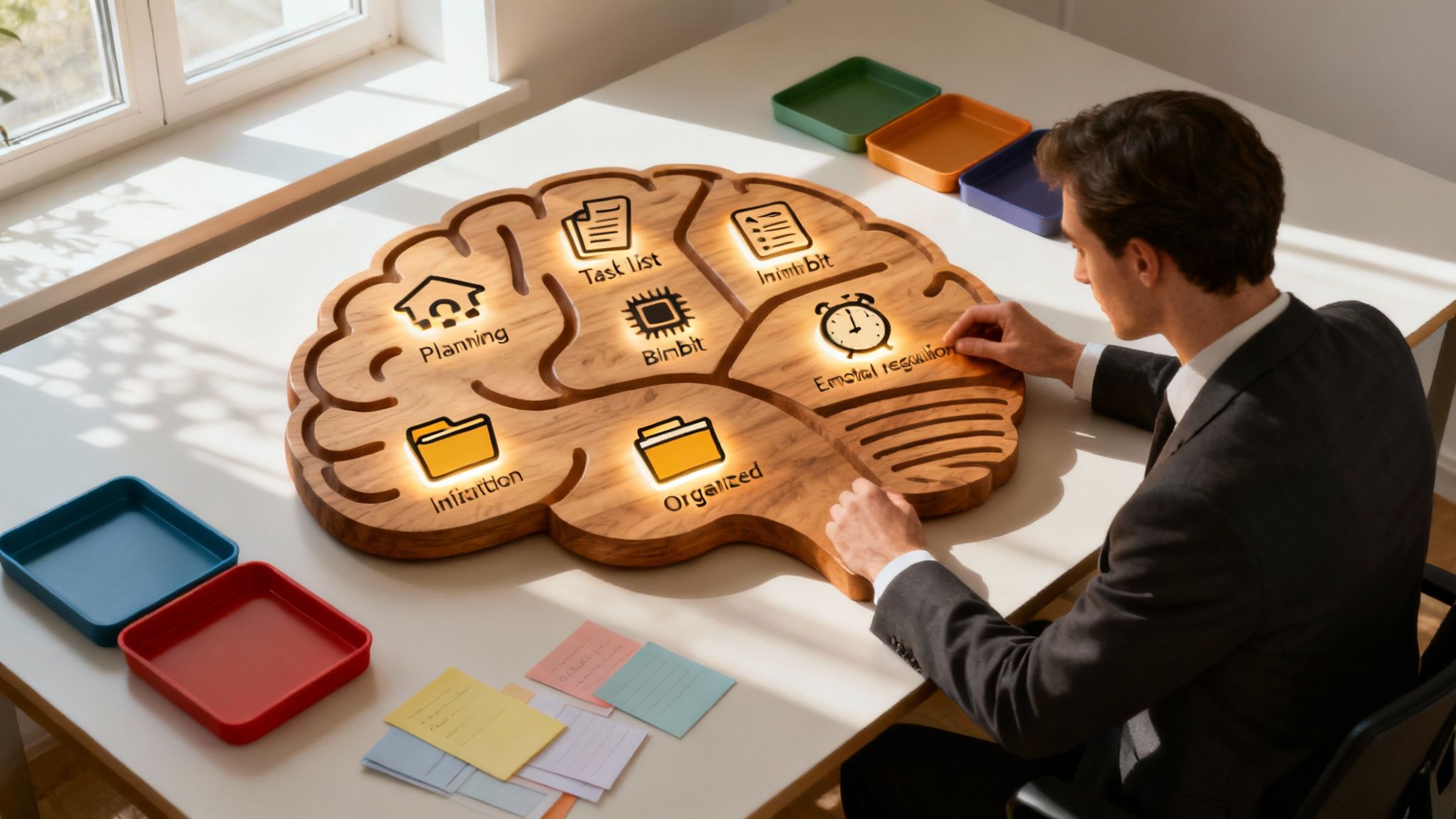It's not unusual to struggle with math homework. Still, some ADHDers face more difficulty understanding numbers and equations than neurotypical people. A condition called dyscalculia — sometimes referred to as "math dyslexia" — may be to blame.
Dyscalculia is a learning disability frequently associated with ADHD. Dyscalculia may cause struggles in the classroom or cause issues with everyday tasks like grocery shopping, cooking, and money management.
Let's learn about dyscalculia and how adults and children with ADHD can manage this learning hurdle.
Too long; didn't read
- People with ADHD may be diagnosed with dyscalculia, a math learning disability.
- Dyscalculia can occur on its own (without having ADHD or other neurodivergent conditions).
- Recognition and treatment in childhood may reduce the effects of dyscalculia in adulthood.
Math learning disabilities and dyscalculia
A math learning disability is an umbrella term for any learning condition that affects someone's ability to learn and understand math.
Dyscalculia is a math learning disability that makes it hard to comprehend numbers, amounts, patterns, and decimal place values. A person with dyscalculia struggles to process numbers quickly. For example, if someone with dyscalculia were to glance at a small group of people, they would struggle with quickly counting how many people were there.
What causes dyscalculia?
Math learning disabilities can arise due to:
- Abnormalities in brain development
- Neurodevelopmental conditions (ADHD, autism, etc.)
- Genetics
- Environmental factors, like problems at home.1
Dyscalculia and ADHD
Up to 60% of people with ADHD are also diagnosed with a learning disorder.2 Combined with ADHD symptoms like inattention and hyperactivity, dyscalculia can affect one's ability to complete math equations.
Examples of math challenges for ADHDers:
- An inability to learn how to solve an equation, despite determination and effort
- Difficulties focusing on homework
- Confusing math equation symbols for subtraction (-), addition (+), multiplication (x), and division (÷)
- Running out of time to finish tests
Dyscalculia + ADHD = executive dysfunction
Executive dysfunction refers to a deficit in executive control, which includes cognitive skills like time management, self-motivation, and thought organization.
ADHD and dyscalculia can prompt feelings of frustration and inadequacy, triggering even more dysfunction in these executive skills.
In addition, both conditions can adversely affect a person's ability to start and complete tasks.
ADHD and dyscalculia leads to a subtraction in working memory
Individuals with dyscalculia, ADHD, or a combination of both will typically experience working memory deficits, reducing retention and concentration abilities. A working memory impairment causes problems in planning, organizing, and task initiation and completion.
What are the signs that someone has dyscalculia?
Symptoms of dyscalculia include:
- Difficulty counting numbers
- Inability to learn and recall standard number information
- Trouble learning math concepts and phrases
- Challenges with keeping score during games
- Inability to count backward
- Mathematics anxiety
- Taking an extended time to solve math problems
Dyscalculia diagnosis and treatment
A professional diagnosis of dyscalculia requires patients to take a standardized test below their age or grade level and a few additional psychological assessments.3 The earlier dyscalculia is detected, the sooner it can be managed to reduce challenges.
While no medications are currently available for this learning impairment, you can pursue other strategies to manage dyscalculia, many of which overlap with ADHD treatment methods.
Dyscalculia treatment options:
- Assistive technology
- Visiting learning specialists or neuropsychologists
- Repetitive instruction of math concepts
- Multisensory instruction
- Cognitive behavioral therapy (CBT)
ADHD and dyscalculia management hacks
Difficulties interpreting math equations and numbers can lead to challenges beyond school and work, as math concepts often go beyond the classroom.
The best way to manage both dyscalculia and ADHD is to create suitable accommodations at work, school, and home. In addition, both conditions require your understanding of the causes and symptoms so you can find the right tools and resources to manage them.
Here are nine strategies for managing both conditions if you're an adult with ADHD and dyscalculia.
- Find a quiet area to do your work
- Listen to calming music or white noise
- Break down tasks into smaller components
- Talk or write out each problem
- Draw the math problem
- Address negative self-talk
- Be transparent about the situation with others (it's ok!)
- Build up self-confidence
- Hire a tutor for additional help

.png)
.png)





